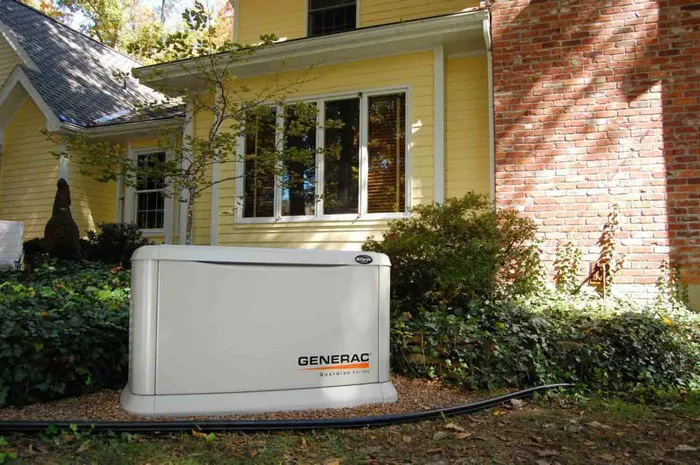When selecting a generator, understanding its capacity and how it meets your needs is essential. A 24kW generator is a powerful option capable of providing electricity for residential and small commercial applications. This article explores what a 24kW generator can power in various scenarios, ensuring you make an informed decision. Let’s dive into the details.
Understanding Generator Capacity
A 24kW generator produces 24 kilowatts of power, equivalent to 24,000 watts. This is a substantial capacity for backup power, supporting multiple systems and appliances simultaneously. To determine what a 24kW generator can power, you need to consider:
Electrical load: Measured in watts, this is the total energy demand of your devices.
Starting vs. running watts: Appliances often require higher power to start than they do to run continuously.
Priority devices: Essential appliances like HVAC systems, refrigerators, and lighting typically take precedence.
Understanding these factors helps maximize the generator’s capacity without overloading it.
What Can a 24kW Generator Power in a Home?
A 24kW generator is ideal for powering large homes, especially those with high energy demands. Below is a breakdown of what it can typically handle:
Essential Household Appliances
Refrigerators and freezers: These appliances require around 600-1,200 watts each to operate.
Lighting systems: LED lights use about 8-20 watts per bulb, while traditional bulbs consume more (40-100 watts).
Water heaters: A typical 40-gallon water heater uses about 4,500 watts.
Microwaves: Consume between 600 and 1,200 watts, depending on size.
With a 24kW generator, you can run multiple appliances simultaneously without interruptions.
Heating, Ventilation, and Air Conditioning (HVAC)
Central air conditioning systems: These systems need around 3,500-5,000 watts to run.
Heating systems: Electric furnaces consume up to 20,000 watts, but smaller units or heat pumps use less.
Fans and dehumidifiers: Typically require 800-1,500 watts.
A 24kW generator can comfortably handle most HVAC systems, ensuring your home remains comfortable during outages.
Kitchen Appliances
- Electric ovens: Consume about 2,500-5,000 watts.
- Dishwashers: Require 1,200-2,400 watts for operation.
- Coffee makers and toasters: Use between 800-1,500 watts.
If you prioritize kitchen appliances during a power outage, this generator provides ample capacity to maintain your cooking and cleaning routines.
Home Office and Entertainment Systems
- Computers and monitors: Require 300-500 watts each.
- Television systems: Use 150-400 watts, depending on size.
- Internet routers and modems: Operate at 20-50 watts.
A 24kW generator ensures that you stay connected and entertained during extended outages.
Laundry Equipment
- Washing machines: Use 500-1,200 watts.
- Clothes dryers: Typically require 1,800-5,000 watts, depending on type.
For families, this capacity allows laundry tasks to continue uninterrupted.
Can a 24kW Generator Power an Entire Home?
Yes, a 24kW generator can power an entire home under most circumstances, but it depends on the home’s size and energy consumption. Here’s a guideline:
Small homes (under 2,000 sq. ft.): A 24kW generator is more than sufficient, allowing full operation of all systems and appliances.
Medium homes (2,000-4,000 sq. ft.): It can power essential and non-essential devices, although you may need to prioritize during peak usage.
Large homes (over 4,000 sq. ft.): A 24kW generator will cover essentials but may struggle with simultaneous use of high-demand systems like multiple HVAC units.
What Can a 24kW Generator Power in a Business?
For small businesses, a 24kW generator is a reliable backup. It can support:
Office Equipment
- Computers, printers, and lighting for a medium-sized office.
- Essential devices like security systems and phone networks.
Commercial Refrigeration
- Ideal for small restaurants or stores with refrigeration units consuming 1,500-3,000 watts each.
Essential Machinery
- Light-duty tools and equipment, such as drills and saws (500-1,500 watts each).
- Small servers or data centers.
A 24kW generator keeps businesses operational during power outages, minimizing downtime and losses.
How to Maximize the Efficiency of a 24kW Generator
To get the most out of your generator, consider the following:
Perform a Power Audit
List all appliances and systems you want to run, noting their starting and running watts. This prevents overloading the generator.
Use Automatic Transfer Switches (ATS)
An ATS ensures a seamless transition to generator power during an outage, prioritizing critical systems.
Manage Energy Usage
Avoid running all high-demand appliances simultaneously. For example, stagger HVAC and kitchen appliance usage.
Regular Maintenance
Keep your generator in peak condition with routine servicing, including oil changes, filter replacements, and fuel checks.
Fuel Requirements for a 24kW Generator
Fuel consumption varies by load, but a 24kW generator typically uses the following:
- Natural gas: 220-250 cubic feet per hour at full load.
- Propane: 2.5-3 gallons per hour at full load.
- Diesel: 1.6-2 gallons per hour at full load.
Understanding fuel requirements helps ensure you have an adequate supply during extended outages.
Comparing 24kW Generators to Other Sizes
To appreciate the capabilities of a 24kW generator, it’s helpful to compare it with smaller and larger models:
10kW generator: Suitable for small homes or basic essentials but not capable of running HVAC systems or high-demand appliances.
20kW generator: Ideal for medium homes but may struggle with simultaneous use of multiple high-demand systems.
30kW generator: Offers extra capacity, perfect for large homes or businesses with higher energy needs.
A 24kW generator strikes a balance between power and cost-effectiveness, making it a popular choice.
Is a 24kW Generator Right for You?
A 24kW generator is a versatile solution for residential and small business use. Consider this size if:
You live in a medium-to-large home and need to power multiple appliances simultaneously.
You run a small business with essential equipment requiring backup power.
You want a reliable generator that balances capacity and fuel efficiency.
Conclusion
A 24kW generator is a robust and reliable power source, capable of meeting the demands of medium-to-large homes and small businesses. By understanding your energy needs, performing a power audit, and managing energy usage, you can make the most of its capacity. Whether for residential comfort or business continuity, a 24kW generator provides peace of mind during power outages, ensuring uninterrupted operations when you need them most.
Related topics:

